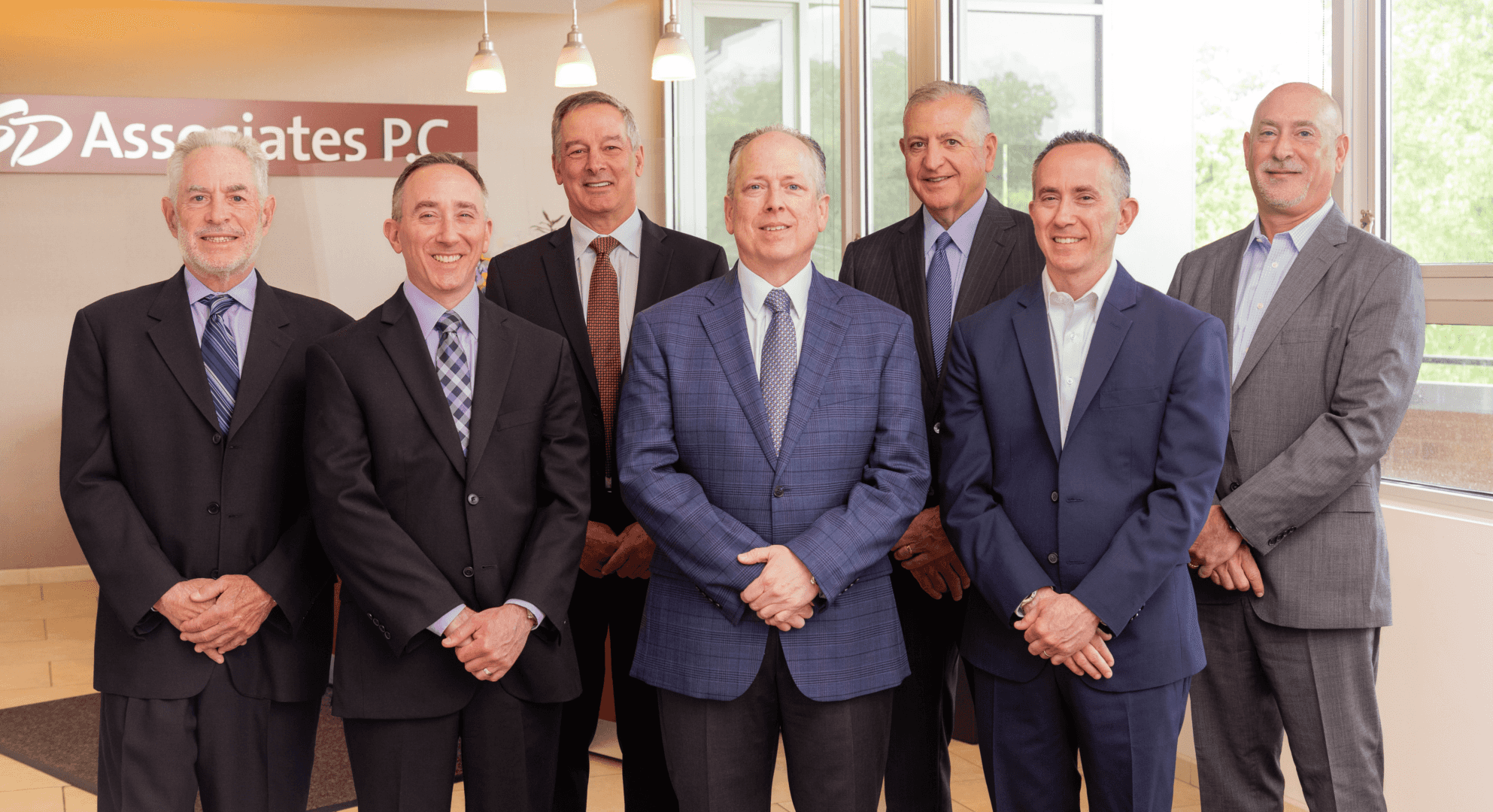
- Home
Why Choose SD
Services

- Services
Tax Services
Tax Planning
Attestation Services
Accounting Services
Business Services
Consultation
Industries We Serve
- Tax Center
Resources
Get In Touch

SD Associates, P.C. CPAs
Healthcare Accountant in Philadelphia
Experience The SD Difference
Healthcare Accountant in Philadelphia

Accounting Pros for Doctors, Chiropractors, & More
CPA Firm Serving PA, NJ, DE, & NY
Healthcare Accountant in Philadelphia
SD Associates, P.C. is a professional accounting firm that offers specialized accounting services for medical practices. Our experienced team of Philadelphia healthcare accountants can provide comprehensive financial solutions to help you manage your medical practice or other health-related business efficiently and effectively. We understand the unique challenges facing healthcare organizations today, and can help you make informed decisions to ensure financial success.
Our team of experts can provide a wide range of services, from financial planning and forecasting to budgeting and cash flow management. We will work with you to develop an accounting system tailored to the specific needs of your business, so that you can track income, expenses, and other financial metrics accurately and efficiently.
Types of Healthcare Accounting Methods
Accrual Accounting
Accrual accounting is the practice of recognizing revenue and expenses when they are incurred, not when money is received or paid. In other words, this approach involves recording the financial effect of transactions even when no cash is exchanged. This method enables healthcare organizations to record an accurate financial picture of all outcomes, allowing for better planning and decision-making.
However, this method does have its drawbacks. Accrual accounting involves complex calculations and requires an understanding of the specific accounting rules for healthcare organizations. As a result, it may require a professional healthcare accountant in Philadelphia.
Cash-Based Accounting
Where accrual accounting records financial effects upfront, cash-based accounting only recognizes income and expenses when cash is received or paid. This method provides a simpler view of the financial position of an organization and is ideal for small healthcare organizations with limited resources.
Like accrual accounting, however, cash-based accounting has some disadvantages. It does not account for any outstanding revenue or expenses, meaning it can provide an incomplete picture of the financial health of the organization. Moreover, this method may leave organizations vulnerable to significant cash flow issues. It should also be noted that cash basis accounting is not accepted under current GAAP standards and should not be used if you wish to follow these regulations.
Which Method is Best For Your Medical Practice
The type of accounting method best for a medical practice depends on its size and needs. Organizations should weigh the pros and cons of each option to determine which approach is most suitable. Moreover, it’s important to enlist the expertise of a professional Philadelphia healthcare accountant who can provide guidance and advice tailored to your specific requirements. Our team at SD Associates, P.C. has the experience and expertise to help you determine the best accounting method for your organization.
Unique Aspects of Healthcare Accounting
Reporting
Financial reporting for healthcare is much more complicated and detailed than traditional accounting reporting. There are certain requirements and procedures that must be followed, such as having to provide financial statements to the government every year with information on patient billing, revenue cycle management, accounts receivable and more. At SD Associates P.C., our team of healthcare accountants is knowledgeable about all the intricate details required for healthcare reporting and can ensure that you are in compliance.
Depreciation Tracking
A depreciating asset is an asset that decreases in value over time. For healthcare organizations, it is important to keep track of the depreciating assets and their values over time for accurate reporting and taxation purposes. Medical practices often make use of depreciating assets like x-ray machines and MRI scanners. Keeping track of these assets and accurately recording depreciation is a key factor in managing cash flow. At SD Associates P.C., we understand the most effective methods for tracking medical equipment depreciation so you can plan ahead for future costs and maximize your tax savings.
Credit Balances
Your healthcare practice may have a balance due to insurers, accounting for any money not quite used up by patient treatments. These credit balances should be monitored regularly and dispersed in a timely manner. We understand the importance of tracking and managing these credit balances for compliance purposes, as well as ensuring that patients are properly reimbursed.
Confidentiality
According to the Health Insurance Portability and Accountant Act (HIPAA), all healthcare organizations must ensure the privacy and security of sensitive patient information. Healthcare accountants are often required to view private patient records when organizing financial statements and must adhere to strict standards of confidentiality. SD Associates P.C. understands the importance of patient privacy and ensures that all information is handled with the utmost care and discretion.
Healthcare Accounting FAQs
Why should my medical practice work with a professional accountant?
Working with a professional accountant can help your medical practice save time, money and create efficiencies. An experienced accountant can analyze the financial performance of your business to ensure that you are making the most of your resources and identifying potential areas for improvement. A qualified healthcare accountant also understands the complexities of running a successful medical practice from both an operational as well as a compliance perspective. With the right financial advice and guidance, your practice can stay on track while meeting all legal requirements.
Are medical practices subject to income tax?
Yes. Medical practices, like any other business, are subject to federal income tax on their profits. In addition, many states have their own individual income tax requirements for medical practices and clinics. An accountant with specialized knowledge in healthcare can help ensure that your practice is compliant with all applicable regulations as well as provide advice on how to best utilize deductions.
What deductions can physicians claim?
Physicians can claim a variety of deductions on their taxes, including expenses related to running the business. This includes items such as office supplies, equipment, insurance premiums and other overhead costs. In addition, physicians may be eligible for certain tax credits if they provide services to underserved communities or participate in research initiatives. A qualified healthcare accountant can help identify all potential deductions and credits to ensure that your practice is taking advantage of every possible savings opportunity.
Contact Our Philadelphia Healthcare Accountant Today
SD Associates, P.C. has been providing superior healthcare accounting services to businesses in the Philadelphia area for over 35 years. Our experienced team of CPAs and accountants can provide you with tailored accounting solutions that will help your business succeed. Contact us today at (215) 517-5600 to schedule your consultation.
Ask a Question
Do you have a question about tax services, attestation, bookkeeping, or our other financial services? Click here to ask one of our financial experts.
Newsletter
Keep up with the latest developments in taxes, finance, and all things SD Associates, P.C. by signing up for our newsletter.
Experience The SD Difference
Why Our Clients Love Us
Accountants Serving Philadelphia, Bucks County, Montgomery County, & Surrounding Counties

Looking For More From Your CPA?
When you partner with SD Associates, P.C., you’re working with a top-notch team of knowledgeable tax professionals. With over 3 decades of experience, we strive to provide our clients with the highest level of service.
Full-service CPA Firm
Over 35 Years in Business
Always Available for Phone Calls
Accessible Via Email or Phone
Wide Client Base
Experienced CPAs with Advanced Degrees


Service Areas
Communities We Serve
Navigation
Services
Accolades
